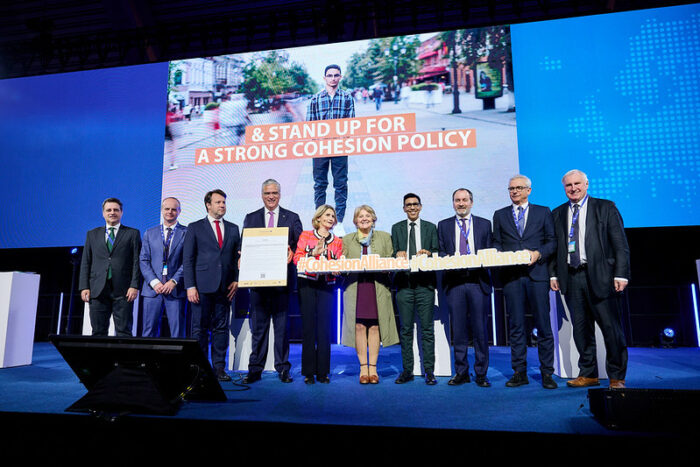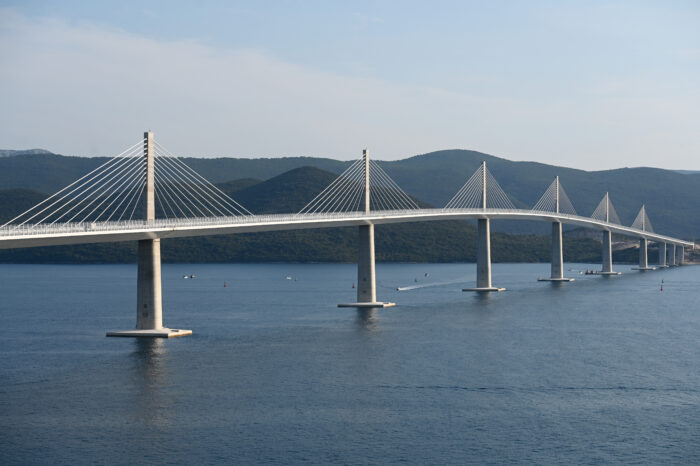The Progressive Post
A good jobs compass for the internal market: creating its human face for the mid-21st century

Former Italian PM Enrico Letta has set a challenge for European leaders, underlining the scale of imagination needed to rethink the internal market in light of our current shifting geopolitical and economic sands.
Letta’s challenge faces many hurdles. In March 2023, the European Trade Union Confederation (ETUC) said of the current European Commission’s Communication on its 30th anniversary, and its plan for the future of the single market that it “puts the EU on course for a race to the bottom and takes it even further away from Jacques Delors’ vision of a social Europe”. A technocratic focus on lifting administrative burdens and indiscriminate ‘one-in-one-out’ deregulation has come to dominate a debate on the internal market focused on cost competitiveness. It is a case of old wine in older bottles.
Europe is experiencing a deep social crisis. The cost-of-living crisis and rising societal polarisation in Europe are socially and economically corrosive. The labour share of wealth created in our economy has continued to fall, with dividends and profits rising quicker than real wages. Increasing social anxiety created by rising prices, high inflation and the cost of living, are among the top-most important concerns of EU citizens: “73% think that their standard of living will decrease over the next year, of which 47% say that they have already witnessed a reduction. Over a third of Europeans (37%) have difficulties paying bills sometimes or most of the time”.
A lack of control and enforcement of the few minimum social rules that exist in the internal market are intensifying the situation. Even in countries with higher income equality, a job is no longer enough to avoid poverty. In more vulnerable sectors, the concern is no longer focused on social dumping but rather labour crime (forced labour and exploitation), as seen in the sub-contracting scandals exposed in Norwegian shipyards or Antwerp’s chemical industry. The use of extended subcontracting chains and labour intermediaries makes exploitation harder to track by austerity-hit labour inspectorates. Deteriorating mental health, in many cases causally linked to this social situation, has been called a new pandemic.
Not all European states and regions have the same capacity to attract private investment to achieve the transition we are collectively embarked on. There is a great risk of seeing territorial inequalities widen in Europe between regions that will be able to attract tomorrow’s industrial investment thanks to the quality of their infrastructures and the state aid granted, and regions that will have no choice but to propose a low-cost, authoritarian industrial policy based on excessive deregulation, the dismantling of collective bargaining bodies, and exploitation of labour migration, as we currently witness for instance in Hungary.
It is time to reassert and update the original vision of the internal market Delors promised to working people across Europe – at its heart should be a new social ‘face’, supported by a proactive industrial strategy to maintain and transform our economies and a new political compass aimed at the creation and maintenance of good jobs – well-paid, secure and sustainable.
Instead of trying to out-compete China and the US by lowering costs and weakening rules and standards, the EU must up its ambitions to “master our destiny” today (to quote Delors’ speech to the Trades Union Congress [TUC] in 1988). At the centre, a genuine European industrial policy is crucial in order to take greater control of our technological destiny in a period of rapid ecological transition, but also in order to (re)make salaried work one of the main vectors of wealth redistribution and social cohesion. In the context of an ageing society, improving working conditions will only become more important. This demands a reshaping of the rules of the internal market.
The internal market must be seen as a means but not the final objective. Free markets cannot be the only European answer to the challenges of our time. An industrial policy fit for the challenges of our time and bound with social conditionalities that ensure the maintenance and creation of quality jobs and regulated fair trade, free from exploitation, must steer the compass we need for the future of the internal market.
The use of social conditionalities across a wide range of internal market policies, from funding instruments, through public procurement and lead markets initiatives, would provide a means of creating triple wins for the economy, good jobs and the environment. Notably, strategic public procurement has the potential to steer markets towards higher quality in terms of environmental or social standards or innovative products, while at the same time underpinning Europe’s industrial policy strategy.
A future EU budget at scale must be the financial cornerstone of the EU transformation to ensure social and regional cohesion and the promise of upward convergence. State aid has a role to play and should not be considered as problematic per se if it is transparent, proportionate and bound with social conditionalities. The solidarity experienced during the pandemic must be channelled into a longer-term funding plan.
In a tight labour market and ageing society, the EU should use all available means to improve the quality of employment, strengthen collective bargaining, increase purchasing power and boost the up-skilling and re-skilling of the existing workforce, ensuring just transitions within and between industries. A real, sufficiently large European industrial investment plan for clean technology value chains, with built-in solidarity, and a good jobs plan for each region should underpin the internal market.
This would deliver a plan for workers worthy of the 21st century.
Photo Credits: Shutterstock/Gorodenkoff




